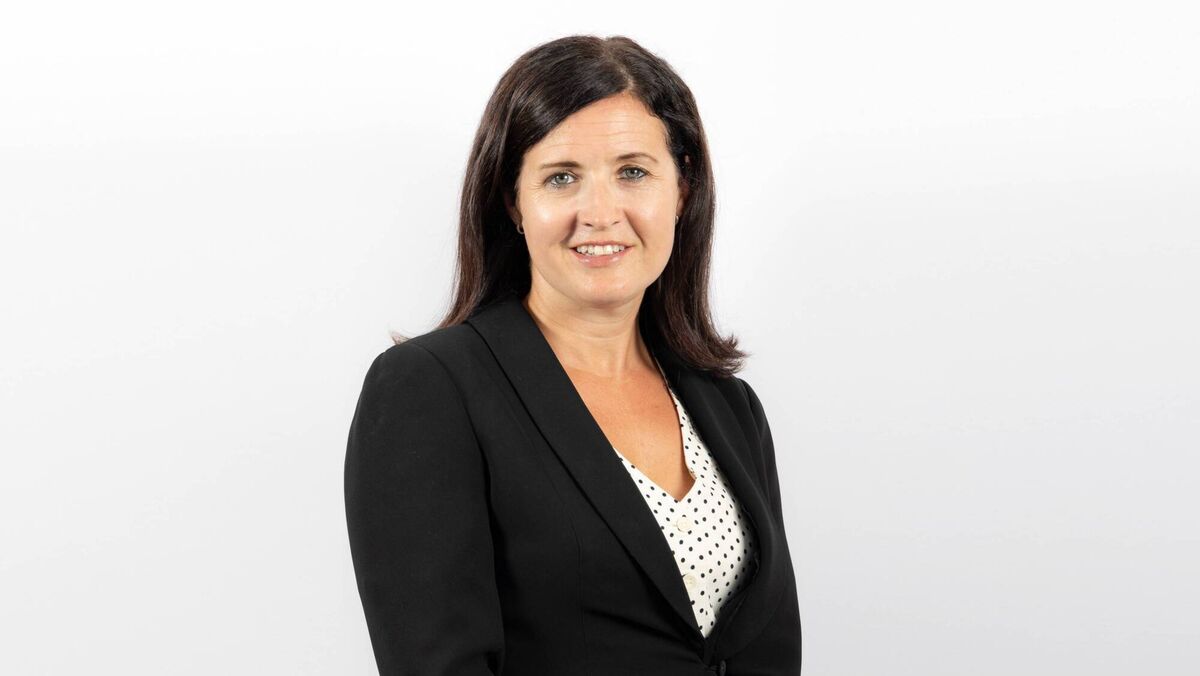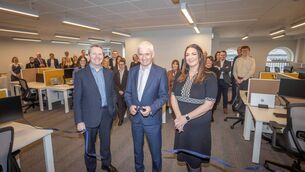Conversations with friends — the things I want my loved ones to know about pensions

Money for jam: Pensions really offer an incredible return on your investment when you stop to consider the tax-relief on each contribution. Depending on your income bracket, contributing €100 to your pot my only cost you €60 or €80 in real terms.
People who invest in private pensions are making the most of some hugely incentivised tax reliefs, advises , senior marketing specialist at Standard Life Ireland

It’s common knowledge that the easiest way to bore a room is talking too much about your job especially if you work in pensions. You should see the way eyes glaze over and feet shift the second people hear “retirement savings”.
This illustrates the wider problem around retirement and savings: we still aren’t talking about either enough Our flagship Bringing Retirement into Focus 2024 research shows that only 34% of adults in Ireland believe they will be able to live comfortably off their pension. While 61% see a pension as fundamental for their retirement, it is worrying that 41% of adults say they have no plan in place, with women far less comfortable talking about money.
A lot of this has to do with the misconceptions and assumptions we have about retirement planning. We naturally want to avoid conversations we assume will be uncomfortable or intimidating. The problem is that in so doing, we tend to put this on the long finger, and, therefore, we don’t educate ourselves enough about the topic and prepare ourselves for retirement. Luckily, it’s an easy enough fix. That’s why I always make sure to bring up a few things about retirement planning when I talk to my friends and family. Or, at least when they let me get a word in.
The idea of having left ‘it’ too late stops so many from doing anything at all. The most important thing you can do is start today, be that in your early career or when you’re approaching retirement age. Enough of the typical Irish mindset, criticising ourselves for being on the back foot with our retirement plans.
Every little bit helps support the next phase of your life, and there’s no such thing as a penny wasted on a retirement plan. As a colleague of mine often says, ‘it’s money for jam’ when you consider the tax relief on each contribution. Depending on your income bracket, contributing €100 to your pot will only cost you €60 or €80 in real terms.
Part of the problem with getting people started, though, is that they find the whole thing intimidating or difficult. They get flash-forwards of pouring over documents, or making drastic lifestyle changes. But momentum is a wonderful thing. It takes just a few minutes to find a financial adviser, and a minute more to send them an email or set up a call. That’s the single most important thing you need to do. After that, they will walk you through the process and make sure you’re in the best position every step of the way.
Once people to start thinking about retirement, their first question is often something along the lines of “okay, what’s the number I have to get to in order to be ready?”. Like so many other things in life, a retirement requires much more preparation than reaching a single number.
Everyone thinks about how their pension will last once they retire; far fewer people are thinking about what that lifestyle will actually look like in practice. Do you want to full retire? Do you want to relocate to the west of Ireland? Do you want to travel, or invest more time into uncovering local gems? Do you want to go back to college?Will you have structure, purpose, and social connection — basic human needs — if you step back from work?
The great thing about this aspect of retirement planning is that it pivots us from dread and hesitancy towards really looking forward to it. One of the real pleasures of my job is watching people get truly excited about their second life post-retirement, which with a fair wind healthwise, can be a golden period.
Naturally, working in this space, I get lots of questions from confused friends and family about auto-enrollment. It’s a great scheme, and it will certainly encourage better saving amongst the Irish public that is in clear need of retirement readiness. But I don’t think people should just assume that auto-enrollment will take care of their every need.
A financial adviser can coach you through the details, but for many people, there’s a lot to be explored outside of the state pensions scheme. They will be able to develop something for you that’s more suited to your age, risk appetite and long-term goals. And there’s no harm in exploring private options, as pensions are hugely tax-efficient.
Think of it like buying clothes. You might be lucky enough that a coat fits off-the-rack, but any savvy dresser will tell you that it’s always a good idea to pop into a tailor and see if they can adjust something to your unique needs.
Our research indicates that over half of women lack any kind of pension scheme, and 2 in 5 feel uncomfortable even broaching the subject of money with their family and friends. So many women are losing out on the long-term financial security they’ve worked for their whole careers or have sacrificed being the central caregiver in the family caring both up and down the generations.
At Standard Life, we’re doing the best we can to reverse this. We’ve developed a Women and Pensions programme to reach women where they are, providing them with valuable information, real insights and stories to encourage them to think about their pension, talk about it and then act on it.
In this same vein, I encourage everyone (regardless of gender) to give our Ultimate Guide for Women and Pensions podcast hosted by Sonya Lennon a listen. The conversations are frank and conversational and guests include Loretta Dignam, Founder and CEO of the Menopause hub, Dr Richard Hogan, psychotherapist and stalwart broadcaster Mary Kennedy. The podcast is really helpful for anyone interested in exploring retirement readiness and not just from a financial perspective.
The Women and Pensions podcast can be found wherever you get your podcasts or on the Standard Life .







